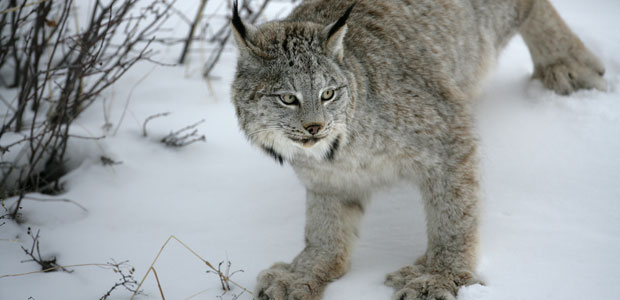Advertisement
Wildlife Wednesday: Canada Lynx
Chances are, if you’ve ever been travelling through the Canadian wilderness, you’ve seen a deer. You might even have seen a bear. But even if you’re in Canada lynx territory, there’s a very good chance you’ll never spot one. This Wildlife Wednesday, learn about the elusive Canada lynx, and how it navigates the snowy forests … Continued

Chances are, if you’ve ever been travelling through the Canadian wilderness, you’ve seen a deer. You might even have seen a bear. But even if you’re in Canada lynx territory, there’s a very good chance you’ll never spot one. This Wildlife Wednesday, learn about the elusive Canada lynx, and how it navigates the snowy forests it lives in.
Habitat: North America, especially in regions with lots of snow
Canada lynx trivia
- At up to 22 pounds and covered in thick fur, lynxes resemble giant, fluffy housecats (but they’re not nearly as friendly).
- The Canada lynx’s favourite food is the snowshoe hare, and its population directly reflects that of the snowshoe hare’s, so if the hare’s population plummets, the lynxes are also in trouble. However, when hares are nowhere to be found, lynxes will hunt other mammals and birds, and they’re even known to take down caribou or deer when desperate.
- One of the lynx’s unique characteristics is its “beard.”
- The lynx has huge feet (just look at that photo!) that act as snowshoes, distributing its weight over the snow.
- Lynxes are not fast runners, and instead rely on their ability to sneak up on their prey, a tactic that also helps save energy in the cold. This also makes them especially secretive.
Why they’re threatened and what you can do to help
Canada Lynxes are classified as threatened. Their main threat in the 1900s was the fur trade, and unfortunately, trapping continues today, although it is regulated. Proper regulation of the forestry industry is also crucial in preserving the lynx population, as lynxes prefer old growth forests.
As consumers, we can help by avoiding purchasing fur and making responsible decisions when it comes to buying wood and paper products.





